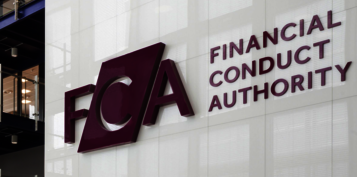Should you pay extra for performance?
David Prosser weighs up the pros and cons of performance-related fees on investment companies.

Performance-related fees on investment companies feel as if they could make a lot of sense. The idea that managers should be incentivised to deliver higher returns appears to align their interests with those of the investors whose money they are looking after. New research, however, rather undermines this argument.
Analysts from RBC Brewin Dolphin studied the past performance of hundreds of collective investment funds in order to measure whether those charging performance-related fees did a better job. In most cases, the analysis concluded, the answer was a pretty decisive no.
Take funds investing in global equities, where the study considered the performance of 429 different vehicles, including 14 that operate with performance-related fees. The latter group had produced an average annual return of 6.88% over the previous five years compared to 7.33% from the sector overall. Amongst Japan funds, the discrepancy was even larger, with funds charging performance-related fees lagging by more than 2.5 percentage points each year.
To be fair, there were exceptions. On average, funds charging performance-related fees in both the Asia Pacific excluding Japan and Europe excluding UK sectors did outperform their peers. For the most part, however, RBC Brewin Dolphin’s analysis suggested little or no correlation between performance-related charges and superior long-term performance.
Why might that be? Well, there are several potential explanations. One problem is that in most cases, funds with performance-related charges also tend to levy a fee that isn’t connected to performance; in other words, managers get paid whatever happens – and receive extra when returns are good. This undermines the incentive effect and also means returns have to be especially strong to overcome the impact on performance of the extra charge.
Another worry about performance-related charges is that they encourage managers to take more risk than they otherwise would. The fear is that in chasing an outsized payday, these managers make excessively large bets, which damage performance when they go wrong.
Critics of performance-related fees also complain that charging structures are often weighted against investors’ interests. The criteria for paying the extra fees may be too easy to hit, for example, so investors end up having to shell out even for pretty mediocre performance.
None of which is to suggest these arrangements are wrong in all circumstances. But RBC Brewin Dolphin’s study underlines why it is important to scrutinise these fees very carefully.
For example, if you’re asked to pay a performance-related fee, you should also be offered a standard annual charge that is lower than the norm, so that the manager doesn’t get paid twice. Look at the benchmarks that the fund must hit to trigger the payments and consider whether they’re reasonable. And tread carefully with relative benchmarks, which can mean you pay charges following a bounce back from a bout of poor performance; absolute benchmarks require the manager to generate positive returns compared to when the last performance fee was paid.
“In general, the view of most experts has hardened against performance-related fees in recent years. The consensus is that far too often they turn out to be over-complicated and offer poor value.”
David Prosser
In general, the view of most experts has hardened against performance-related fees in recent years. The consensus is that far too often they turn out to be over-complicated and offer poor value.
Certainly, the investment companies industry has moved away from these charging structures. The number of funds using them has fallen sharply. Indeed, investment companies continue to cut charges across the board – data published by the Interactive Investor platform last month showed 175 have reduced their charges in the past year alone, more than half the industry. Not a bad trend during this period of high inflation.






